 Hard Times Bring Back Thrift
Hard Times Bring Back Thrift
Without the aid of easy credit, matching income with expenses has required cutbacks in consumer expenditures and forced price reductions and layoffs by businesses. Frugality has become the new mantra for many as we can see from the following examples.
Dumped Pets Pay The Price Of Recession –
From fancy cars to foreign holidays, Britons have had to relinquish all sorts of luxuries as the credit crunch takes hold. To this list we can now add pets: 57% more animals were abandoned last year than in 2007, according to figures from the Royal Society for the Prevention of Cruelty to Animals (RSPCA).
The number of abandoned cats rose by half; dogs by nearly a third. Horses, farm animals and exotic pets were also being left to fend for themselves.
Tim Wass, chief officer of the RSPCA inspectorate, said the cause was “everything to do with the economics about owning a pet”, from paying for food to veterinary bills.
In Glum Times, Repair Shops Hum
Economic fears are driving a resurgence for repairmen. When it comes to autos, computers and all kinds of appliances, consumers are more likely to repair what they have, rather than buying a new replacement.
Appliance-repair businesses, too, have seen an uptick in business in recent months, says Michael Donovan … even though the appliances he works on are not very expensive to buy new.
He and other business owners are surprised by the repair work people authorize these days. “Much to my amazement, people are spending $60 on repairing a vacuum that they bought for $100 new,” he said, adding that limiting new purchases is “definitely a factor on everyone’s mind.” Mr. Donovan has even seen a rise in repairs of small home items, such as electric razors.
Cars, however, are the most visible signs of the new frugality, with new-vehicle sales down sharply. Opting to keep cars running, consumers are extending the lives of their vehicles to nearly 10 years on average from eight just two years ago, says the Automotive Services Association, a trade group for repair businesses.
Like many retailers in this difficult environment, Starbucks experienced further declines in comparable store sales in both its US and International stores during the quarter. Consolidated comparable store sales declined by 9% for the first quarter of fiscal 2009, with comparable store sales declines of 10% in the US and 3% in International for the period. Management believes that the negative comparable store sales are in large part a result of the ongoing global economic crisis and its effects on consumers’ discretionary spending…
Expect to see continued poor sales at Starbucks as consumers realize that one upscale beverage per work day can amount to over $800 per year.
Falling sales caused by frugality are forcing businesses to cut costs and slash prices in an attempt to stimulate sales.
Yankees Slash Prices to Fill Costly Seats
Acknowledging their prices were too steep even by Yankees standards, the 26-time world champions announced a plan to fill thousands of empty high-priced seats by reducing prices and giving away much of the unsold inventory.
The Yankees cut season-ticket prices on some of their premium seats by as much as 50% — to $1,250 from $2,500 for some seats and to $650 from $1,000 on others. Customers who purchased such season tickets will receive their choice of a refund or a credit.
Mr. Steinbrenner said the team reviewed its pricing “in light of the economy,” and stated the changes were for the 2009 season only.
Whether or not Mr. Steinbrenner’s optimism is warranted remains to be seen. I would expect further price cuts in the future as incomes remain weak and demand for premium priced services diminishes further.
Newcomers Challenge Office-Supply Stalwarts
In the grinding recession, companies are finding ways to save even on the cost of the lowly office pen. And that has created an opening for discounters to steal business from the office-supply industry’s big three.
The result: a wave of price-competition that is benefiting lower-cost vendors and encouraging companies to switch suppliers.
Count Me In for Women’s Economic Independence, a New York group that promotes women entrepreneurs, switched its business to Sam’s Club after a review of its Staples invoices. “It turns out we’ll be saving more than $7,000 on an annual basis,”said Nell Merlino, president and chief executive.
Franchise Sales Pull Back During the Recession
Annual applications from franchisers who want to do business in Maryland are down significantly so far this year, says Dale Cantone, an assistant attorney general for the state. First-quarter franchise-registration applications in Maryland fell 16% from a year earlier to 367.
Other states report similar falloffs. For instance, California’s filings from Jan. 1 through its April 20 deadline fell nearly 20% from a year earlier to 769. New York’s first-quarter registrations dropped 22% to 348 — the lowest number in five years.
The fall off in franchise sales is being blamed on a lack of financing. Hopefully, the real reason is a more rational allocation of capital by lenders. Does the average American city really need more fast food outlets, real estate firms or home decorators?
Forced Frugality
Have American consumers rejected the notion of credit fueled economic prosperity or is something else at work? The reason for the new found frugality correlates to the fundamental economics of adjusting spending to income levels. Lower income levels, the threat of unemployment, lack of savings and the destruction of stock and real estate values have created a fundamental shift in consumer behavior that is not likely to change in the near future.
Salary Cuts: Ugly, But It Could Be Worse
A growing number of employers are resorting to salary cuts as the recession drags on. This month alone, A.H. Belo Corp., publisher of the Dallas Morning News, and the Atlanta Symphony Orchestra have announced pay reductions of as much as 15%.
At some companies, the cuts affect only executive and senior management levels, but many others are adopting an across-the-board approach or tiered salary reductions. Some companies are imposing permanent cuts, and some are promising to return employees to their full pay — eventually.
A January survey by global outplacement firm Challenger, Gray & Christmas found that of 100 human-resource professionals surveyed, 27.2% reported that their companies have imposed a salary freeze or cut.
Until the current recession, the practice of imposing pay cuts has been “very rare,” says John Challenger, chief executive officer of Challenger, Gray & Christmas, despite recent calls for capping executive salaries and bonuses.
Organizations in dire straits may have no choice but to slash salaries across the board. After being unable to make payroll in mid-March, South Carolina’s Charleston Symphony Orchestra cut the wages of all its staff and employees by 11.4%. Musicians in the orchestra also took a 11.4% hit in the form of unpaid time off.
Entrepreneurs Cut Own Pay To Stay Alive
A number of small-business owners have stopped paying themselves as they struggle to keep their companies afloat.
It’s impossible to know just how many owners are affected. But in a sign of the breadth of the trend, 30% of 727 small-business owners and managers surveyed by American Express Co.’s small-business services division said recently that they were no longer taking a salary. That’s a troubling sign for small businesses, which have created a significant share of the new U.S. jobs in recent years.
It’s not uncommon for owners to give up salaries from time to time to give their companies a temporary lifeline, but business advisers and owners say the prevalence of salary cuts now is unusual even for a recession.
“The situation overall is more dire,” says Jerry Silberman, chief executive of Corporate Turnaround, a debt-restructuring company in Paramus, N.J. Historically, he says, nearly half of his clients weren’t taking a salary when they come through his door. Now, it’s close to two-thirds. And if they do take a salary, it’s often not enough to cover expenses.
The prevalence of pay cuts, something rarely seen before, tells us that this economic downturn is different. The unanswered questions are how much worse does it get and how long will it last? Those businesses carrying heavy debts have the lowest chances of surviving as the downside of leverage shows its destructive capacity.
Newly Thrifty Americans Are Slashing Spending More Than The Numbers Show
How much have Americans cut back?
On the face of it, not much. The official data from the Bureau of Economic Analysis say that in February personal spending was down 0.4%, or $40 billion, from the year before. Certainly any drop is bad news, since consumer spending rarely decreases–but $40 billion out of total spending of $10 trillion doesn’t seem like enough to wreak economic havoc.A closer look, however, shows that Americans have tightened their belts more sharply than the numbers report. The reason? Official figures for personal spending include a lot of categories, such as Medicare outlays, that are not under the control of households.
After removing these spending categories from the data, let’s call what’s left “pocketbook” spending–the money that consumers actually lay out at retailers and other businesses. By this measure, Americans have cut consumption by $200 billion, or 3.1%, over the past year. This explains why the downturn has hit Main Street hard.
For those American consumers concerned with their financial future, harsh realities are setting in. The massive structural imbalances caused by decades of stagnant income growth and huge increases in debt levels will not be cured quickly. Household balance sheets will eventually improve but it will be a slow and painful process for many. The Age of Frugality is here for the foreseeable future.
Not All Are Suffering
After reviewing the gloomy news above, let’s end on a positive note. Many Americans are financially secure, by dint of personal effort or privileged positions. Here are two examples of those in the later category.
CCAGW Opposes Congressional Pay Raise
(Washington, D.C.) – The Council for Citizens Against Government Waste (CCAGW) today urged lawmakers to make their first order of business when they reconvene in the nation’s capitol in January to introduce legislation to freeze congressional salaries at current rates. All Members of Congress are slated to get an automatic pay raise in January, 2009 unless they vote to block it. Each rank and file member of Congress is poised to see another $4,700 in his or her paycheck over the next year, an increase of 2.8 percent over their current $169,300 annual salary.
“Members of Congress don’t deserve one additional dime of taxpayer money in 2009,” said CCAGW President Tom Schatz. “While thousands of Americans are facing layoffs and downsizing, Congress should be mortified to accept a raise. They failed to pass most of their appropriations bills, the deficit is on pace to reach an unprecedented $1 trillion, and the national debt stands at $10 trillion. In addition, this Congress has been ethically challenged, plagued with corruption allegations, convictions, and sex scandals.”
The list of monetary benefits (beyond salary) that goes along with being a member of Congress is too long to list, but suffice it to say that most members of Congress will continue to live the “American Dream”.
Money For Nothing-Paul Krugman
On July 15, 2007, The New York Times published an article with the headline “The Richest of the Rich, Proud of a New Gilded Age.” The most prominently featured of the “new titans” was Sanford Weill, the former chairman of Citigroup, (C) who insisted that he and his peers in the financial sector had earned their immense wealth through their contributions to society.
Soon after that article was printed, the financial edifice Mr. Weill took credit for helping to build collapsed, inflicting immense collateral damage in the process. Even if we manage to avoid a repeat of the Great Depression, the world economy will take years to recover from this crisis.
All of which explains why we should be disturbed by an article in Sunday’s Times reporting that pay at investment banks, after dipping last year, is soaring again — right back up to 2007 levels.
One can argue that it’s necessary to rescue Wall Street to protect the economy as a whole — and in fact I agree. But given all that taxpayer money on the line, financial firms should be acting like public utilities, not returning to the practices and paychecks of 2007.
So what’s going on here? Why are paychecks heading for the stratosphere again? Claims that firms have to pay these salaries to retain their best people aren’t plausible: with employment in the financial sector plunging, where are those people going to go?
In 2008, overpaid bankers taking big risks with other people’s money brought the world economy to its knees. The last thing we need is to give them a chance to do it all over again.
Few could argue with Mr. Krugman’s well penned article but will anything change? With their high powered Washington connections, my bet is that the boys at Citigroup, AIG, Bank of America, et al will continue to do just fine.
Recession Has Changed Lifestyles
A Reality Check For Economic Optimism
Disclosure
Financial interests in companies mentioned – None
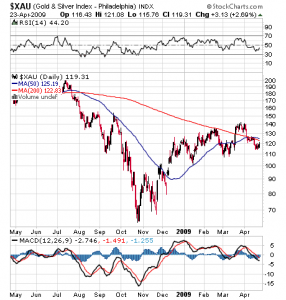
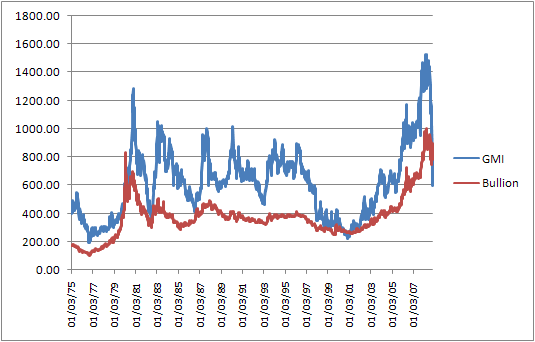
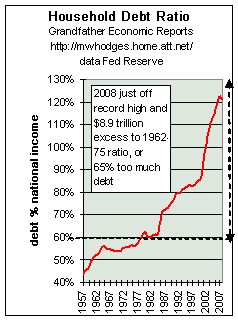
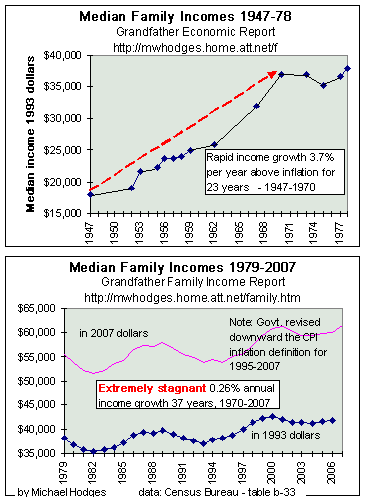
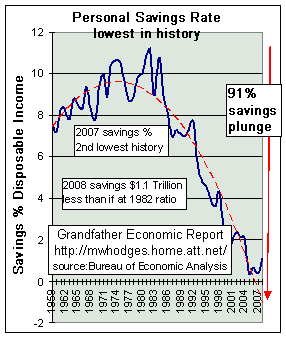
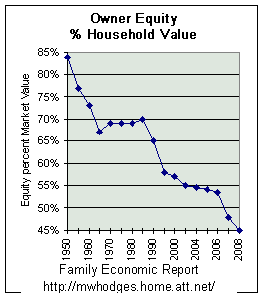

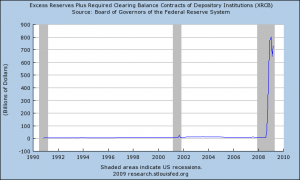

 Hartford, CT Anti-Tax Rally
Hartford, CT Anti-Tax Rally
 deploying their TARP funds to provide low rate financing for new home buyers. The program was limited in time and funding allocation as detailed below:
deploying their TARP funds to provide low rate financing for new home buyers. The program was limited in time and funding allocation as detailed below:
